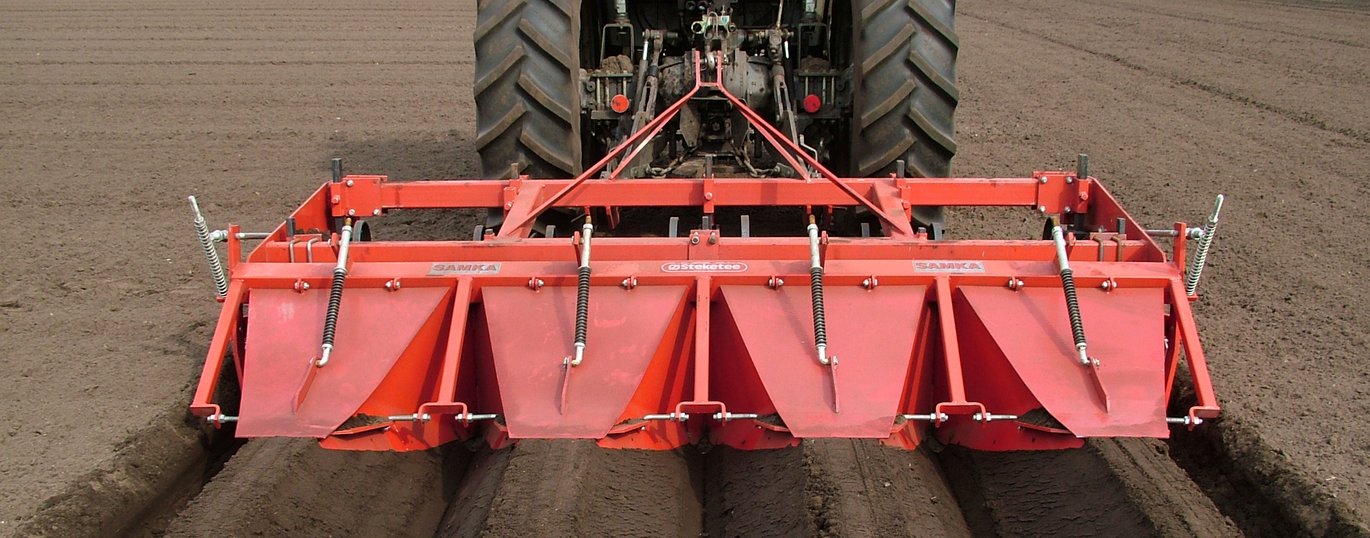Building a cross-European framework for climate-smart sustainable agricultural soil management systems
24 countries join forces in the European Joint Programme EJP SOIL. The overall objective is to provide sustainable agricultural soil management solutions that contribute to key societal challenges including climate change and future food supply

We do not always remember the importance of soil, but actually, our lives depend on it. Soil is the habitat and the supplier of nutrients and water for plants and their roots.
Fertile and productive soils are literally the foundation of our existence, as they are the prerequisite for a stable supply of food, fibre, animal feed, timber and other biomasses.
Sustaining soil functions
Soils sustain huge biodiversity and contribute to the provision of a wide range of ecosystem services, and as the largest store of carbon on land, soils are also in the nexus of the global climate challenges. Soils are part of the solution to realising the SDGs.
However, soil is a limited resource, and soil degradation including erosion, loss of soil organic matter, soil contamination and soil sealing are threats to soil functions. Intensified production due to rising global demand for food and biomass will only amplify the challenges.
Through sustainable soil management, it is possible to preserve and even enhance the provision of ecosystem services by soil and biodiversity. Soil management can also be climate smart, contributing to mitigate climate change by carbon storage and to adapt agroecosystems to changing climate.
Climate smart sustainable soil management is the adequate response to these key societal challenges.
Both the European Environmental Action Programme, FAO and other international initiatives are calling for increased knowledge on sustainable soil management and the protection of soils functions.
A European effort for sustainable soil management
On this background, the objectives of the European Joint Programme EJP SOIL are to develop knowledge, tools and an integrated research community to foster climate-smart sustainable agricultural soil management, i.e. agricultural soil management that allows sustainable food production, sustains soil biodiversity, as well as other soil functions that preserves the ecosystem services that the soils deliver.
EJP SOIL comprises 26 partner organisations from 24 countries. Together with the European Commission, the partners have a joint budget (80M€) and forces to create an enabling environment that will enhance the contribution of agricultural soils to key societal challenges, including climate change adaptation and mitigation, sustainable agricultural production, ecosystem services provision and restoration and prevention of land and soil degradation.
Roadmap for sustainable soil management
The implementation of climate smart sustainable soil management differs from region to region, between agricultural practices and obviously between different soil types. As one of its first activities, EJP SOIL will involve European and national stakeholders in identifying knowledge gaps and differences in existing regional and national activities. Stocktaking will establish the baseline of available knowledge and tools in partner countries and help to identify research priorities. This will enable the construction of a roadmap that will functions as a strategic research agenda that allows for strategic decision making in science, policy and implementation issues across Europe.
EJP SOIL will develop harmonized and easily accessible soil information, contributing to international reporting on agricultural soils. The combined efforts will strengthen a multidisciplinary research community working on agricultural soils, integrated in a wider network of stakeholders, and through a collaborative approach, EJP SOIL will support networks creation, initiation of transnational projects and training of PhDs, educational training, dissemination and communication.
Awareness, guidelines and policy advise
EJP SOIL will seek to raise general public awareness and improve understanding of agricultural soil management.
Farmers, landowners, land managers and industry will get access to context-specific guidelines for sustainable soil management practices, technology and tools for carbon level accounting. As part of the roadmap development, stocktaking will look at current models for accounting for soil quality and soil carbon in partner countries. Among other outcomes, this will lead to possibilities for the implementation of agricultural soil management options accounting for the potential effect on soil organic carbon stocks and GHG emissions.
At the policy level, the aim is to identify data gaps and priority needs for new knowledge and enhance evidence-based recommendations for policy-making at European and regional levels.
The EJP SOIL programme has received funding from the European Union’s Horizon 2020 research and innovation programme under grant agreement No 652615
Contact information
EJP SOIL Coordinator: EJP SOIL Coordinator: Claire Chenu INRAE. E-mail address: ejpsoil@inrae.fr
Further information
For more information about EJP SOIL, please visit www.ejpsoil.org and subscribe to the programme newsletter.
At the website, you will find contact information on national partners and programme representatives.

